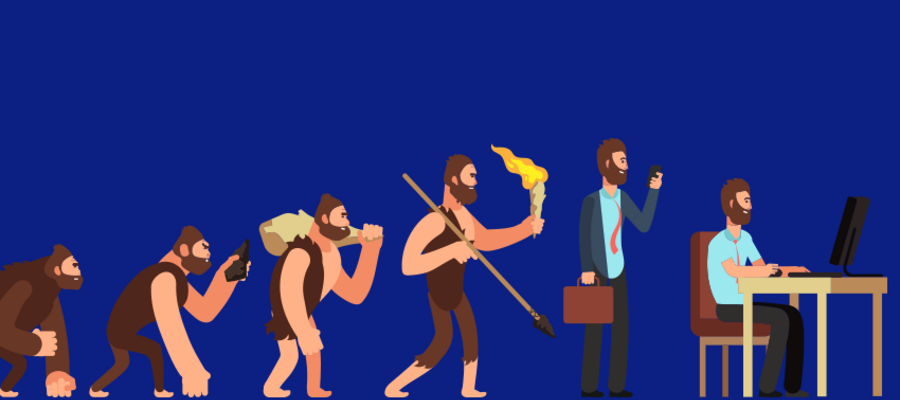Okay, Charles Darwin didn’t actually have a theory of digital designer evolution, but we do…
Although we may not always be aware of it, some aspect of digital design is incorporated in pretty much every product and process involved in modern daily life. Many people outside of the digital industry relate the term “digital design” to websites, however it actually covers much more than that; all the way from the digital design plans during the conception of an initial product idea, to the way that it is promoted and marketed.
With the digital and tech world always evolving, the roles of its talent are also ever changing. Recruiting for this sector, we have found that the typical “digital designer” as we knew it previously, is hard to come by in recent times; but what we are seeing more and more of is UI and UX designers, or a combination of the two. Mass production and mass communication have brought with them significant changes in the industry that have required the role of a digital designer to adapt accordingly. Each wave of technological advances has incurred an evolution of this role; making us question as to whether digital designer should still be considered an individual role, or more of a team sport?
As a candidate, it is really important to consider your choices when it comes to generalist versus specialist.
Becoming a specialist allows you to concentrate on the skills that you’re best at and passionate about and leave other aspects of the job to someone else. You could find yourself much more fulfilled in your work, and possibly better sought after and paid if you are successful in the areas in which you choose to specialise. Another benefit of specialisation within digital design is the higher chance of gaining a role at a larger company. If working for a large corporation is your goal, then gaining and developing specific skills, will most certainly be advantageous to you, as digital design is more likely to be treated as a team activity.
Something to be aware of when you have become more specialised, is the term with which you choose to label yourself. For example, many companies intermittently replace the term “UX Designer” with “Product Designer” so bear in mind when you’re looking or applying for jobs, that you may have to use several different keywords in your search, and change the term on your CV and cover letter to match (but don’t apply unless the role is applicable to your newly and honed specialised skills).
Smaller companies with less manpower are less likely to have staff dedicated to a digital design team. In this case, they would find it much more beneficial to pay fewer salaries but hire employees that can bring a varied knowledge and more vast experience to their business. So, if a smaller or more local company is up your street, demonstrating a diverse range of digital design skills would be far more likely to help you land this type of job.
Here at become, we are always watching eagerly for emerging trends in recruitment and the digital industry and we do our very best to provide the best advice and information to top tech talent. Have your influence in the digital industry by checking out our latest digital jobs.

